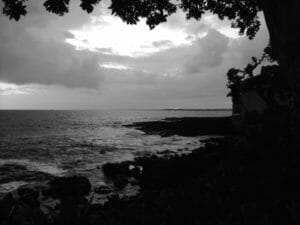
Stranger than Fiction
Janet Finsilver

Sometimes real life can be stranger than fiction. People often ask me where I get my ideas for my books. I’m always on the lookout for interesting articles in the news. However, sometimes I run across stories that are difficult to believe even though they’re true. They are tempting to put in my books, but I choose not to. With this in mind, I’d like to give you an example.
Our local paper had a front page story about plant poaching. This was something I’d never heard of, and it caught my attention. It sounded like a topic that might be good for one of my books. A major investigation was started by the California Department of Fish and Game after an anonymous phone call was received by one of their wardens.
The caller was a woman who had been standing in a long line at a post office. The man in front of her had a large stack of packages he was shipping to China. She asked what he was shipping. He put his fingers to his lips and whispered it was something very valuable. Then she asked where he got them. He responded by pointing toward the ocean. She became suspicious and called the California Department of Fish and Game about what she’d experienced but didn’t leave her name.

The warden who received the anonymous call alerted US Customs and Border Protection. The package was x-rayed, and they discovered Dudleya farinosa, a small succulent found along the coast. The part I put in the “stranger than fiction” category is the fact that this man let a stranger know something about what he was doing that was illegal. I think in a mystery story, many people would feel like that was a very convenient way for information to be revealed—too convenient. But, there you have it. It’s a true story.
With a higher awareness after this discovery, authorities found more and more poachers. The plants were being uprooted by the thousands. They have become popular in a number of countries. Officials have said they sell for approximately fifty dollars each or more depending on the age and size of the plant in countries like South Korea, China, and Japan.
The plant is a small pale green succulent, often with edges or tips in bright colors. Its leaves form a rosette pattern. When they bloom, they have a tall stem with a cluster of bright yellow flowers. The plant is native to the coasts of Oregon and California and are found on the bluffs in these areas. It is sometimes called bluff lettuce or powdery liveforever.
Volunteers from the poached areas have organized to help replant the recovered smuggled plants. They sort them into piles of ones that can be go back in the ground right away and others that will need more tender care for a while. Meanwhile, officials will continue to be vigilant about identifying and arresting poachers, and reclaiming the plants.
Plant poaching is part of the plot in Murder in the Wine Country. I thought it was an interesting piece to include as it was so unusual. While my research says plant poaching has been going on in a number of places and with different plants for a while, nothing indicated there had been anything the magnitude of what was found in California until this was exposed.
I hope you’ve enjoyed this piece about plant poaching. It was all news to me!
Learn more about Janet Finsilver at janetfinsilver.com


Thank you for the opportunity to do a guest post. I really appreciate it!
Very interesting Janet – look forward to reading your mystery.